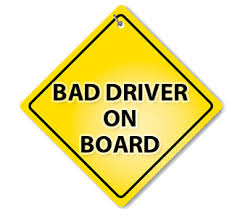If you met Christian Caruana, he would not stand out as remarkable in any way. Standing in running shorts and a hoodie, he is a bit undersized at 5-foot-6, has a lean frame, and a slight build. At first glance you would not think him an athlete, but hearing his training regiment might make you rethink that. Today's schedule: a 5-mile run, an hour of tennis, half an hour of basketball, and at least an hour of swimming.
And that's just his warm-up. When sufficiently warm, he will spend an additional six to eight hours in sport-specific drills and activities.
What is his sport?
Chess. Yes, I said chess!
Caruana is, in fact, an American grandmaster in chess, the No. 2 player in the world. It turns out that competitive chess is physically challenging and burns a heck of a lot of calories. According to a recent article on ESPN's website, "A company monitored chess players during a tournament and found that 21-year-old Russian grandmaster Mikhail Antipov had burned 560 calories in two hours of sitting and playing chess, or roughly what Roger Federer would burn in an hour of singles tennis."
The article further states that "Robert Sapolsky, who studies stress in primates at Stanford University, says a chess player can burn up to 6,000 calories a day while playing in a tournament ... Grandmasters sustain elevated blood pressure for hours in the range found in competitive marathon runners."
Some would snicker at the thought of chess being a sport or Caruana being an elite athlete, but apparently, the folks at ESPN would beg to disagree.
Me? My first thought is that I have been dieting and exercising all wrong.
Music is not that different from chess. In fact, many of the great grandmasters were also musicians themselves. Both disciplines require:
a deep understanding of patterns and symbols
discipline and creativity
the ability to read ahead
an understanding of time, tempo, dissonance, and resolution
a great deal of time and training to understand
an understanding of math and artistic concepts
But more than anything, both are going through a renaissance of understanding and acceptance. Both are now seen as athletic as well as academic activities. Both are gaining the respect of not just their peers, but the world around them.
Music and chess are not alone in this renaissance. Cheerleading is now a highly respected competitive sport. Science fairs have evolved into state and national robotics competitions. DECA, FCCLA, and FBLA have nationally attended competitive events. Heck, ESPN, the self-proclaimed "worldwide leader in sports," now televises the National Spelling Bee.
More so than their adult counterparts, young people are open to change and are willing to respect people and things that are different than they are. They see and respect dedication and commitment, regardless of the craft. They are less likely to judge someone by the color of their skin, the contents of their wallet, the person they love, or the activities in which they compete.
Young people have figured out what most adults have not; putting others down does not lift ourselves up. And being different can be more valuable than being the same. Today's young people, more so than at any time in our past, understand that it is not about what others think, it's about what THEY think. This is as important to music as it is to chess.
Music doesn't need to be anything other than what it currently is.
It doesn't need to be more or less important to be of value. It doesn't need to compete against anything else to prove its worth. It doesn't need to have a loser for someone to win. It doesn't have to be exclusively artistic or athletic; it can be both. It is perfectly perfect without trying to be something it is not.
It is MUSIC. It cannot be compared to other activities, as there is nothing quite like it. It does not need to be justified, as it is omnipresent in our world and not going anywhere soon. It does not need to be defended, as it is not on trial for committing a crime.
Just as we should allow chess to be chess, we should let music be music — nothing more, nothing less.
Trying to convince others that we are AS important, AS valuable, or AS athletic as they are doesn't make us any MORE important, MORE valuable, or MORE athletic than we already are.
We are who we are. And, as long as we know and are comfortable with that, we have already won the game.
Checkmate!
Have a great week.










